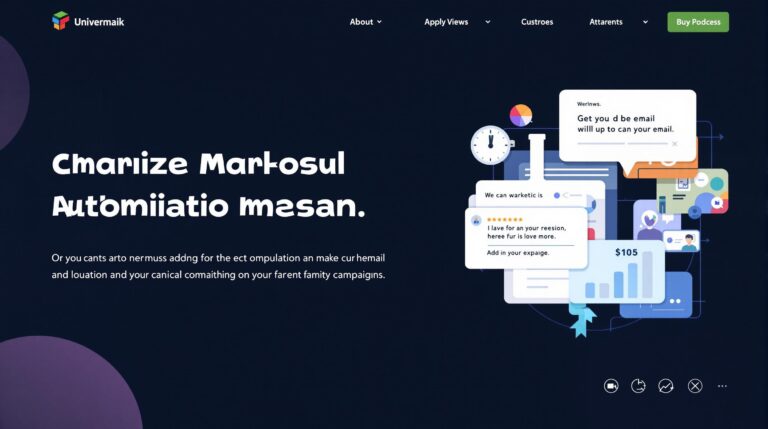How to Use AI to Generate Blog Posts That Rank on Google
AI-generated content has become a powerful tool for digital marketers seeking higher search rankings. Recent studies show that 35.8% of high-ranking articles on Google now have AI assistance, highlighting the growing acceptance and effectiveness of machine-generated content when properly optimized and edited to meet search engine quality standards.
Key Takeaways
- 64% of AI-generated articles achieve top-20 rankings with proper optimization
- Google prioritizes EEAT principles (Experience, Expertise, Authoritativeness, Trustworthiness) over content creation methods
- Adding authenticity markers like case studies and unique data significantly improves ranking potential
- Articles with 3+ internal links rank 40% higher than those without
- Manual editing and expert contributions can double the traffic of pure AI content
Google’s Stance on AI Content: Separating Fact from Fiction
Many content creators hesitate to use AI tools due to misconceptions about Google’s policies. The reality is that Google’s official stance focuses on content quality, not creation method. According to Semrush’s analysis, about 8% of top-ranking URLs are “likely AI-generated,” proving that artificial intelligence can produce competitive content.
The Kopp marketing study delivered even more compelling results: 100% of AI-generated articles published on established domains achieved top-100 rankings. Many of these pieces even earned featured snippets in search results. This success didn’t happen by accident—it required strategic optimization.
What matters most to Google isn’t whether AI created your content, but whether it satisfies user intent, maintains high EEAT standards, and includes human expertise. The key to success lies in using AI as a productivity tool while adding your unique insights, fact-checking, and personal experience.

The Ultimate AI Content Creation Workflow for SEO
Creating content that ranks requires a structured approach combining AI efficiency with human expertise. I’ve developed a workflow that consistently produces high-performing blog posts using artificial intelligence:
First, generate initial drafts at an 8th-grade reading level to ensure accessibility. Research shows that simpler language typically performs better in search results and keeps readers engaged longer. Next, enhance these drafts with authenticity markers that Google values.
These authenticity elements include:
- Original case studies from your experience
- Proprietary data or research findings
- Customer testimonials and real-world examples
- Expert quotes and insights from your team
On-page SEO optimization is crucial for AI content. Place keywords strategically in H2/H3 headers and meta descriptions without overoptimizing. Include visual elements like tables and infographics to present comparisons clearly, and optimize images with descriptive alt text.
Internal linking plays a significant role in ranking success. The data shows articles with three or more internal links rank 40% higher than those without. When using AI content generation tools, always add these links manually to ensure relevance.
For advanced optimization, add industry-specific jargon and terminology that demonstrates expertise in your field. Embedding explainer videos can significantly increase dwell time, sending positive signals to Google about content quality.
Top AI Tools for SEO-Optimized Blog Posts
Several AI writing tools stand out for their SEO capabilities, each with unique strengths. AirOps integrates GPT-4 for comprehensive SEO analysis, reducing research time by 70% through automated competitor content scanning. Its ability to identify content gaps gives it an edge for creating comprehensive articles.
Blaze.ai takes a different approach by analyzing three reference articles that already rank well. The system then matches proven content structures while handling automatic keyword placement. This approach is particularly effective for competitive niches where structural similarities matter.
For those needing to create content at scale, Koala AI specializes in bulk generation with natural language processing term integration. Users report success ranking for medium-difficulty keywords within weeks of publishing, making it ideal for large content operations.
Copy.ai leverages GTM AI to analyze influencer content patterns, identifying 20-30% more keyword opportunities than manual methods. This makes it particularly valuable for creating comparison content that resonates with readers.
When choosing between these tools, consider your specific needs around content volume, niche complexity, and integration requirements. Many content teams use multiple tools in combination, leveraging the strengths of each for different content types.
Strategic Keyword Research for AI-Generated Content
Effective keyword research is even more critical when working with AI content. Long-tail keywords achieve 30% higher click-through rates for AI-generated articles, likely because they align better with specific user intent.
Tools like Surfer SEO, Frase, and the Detailed Chrome Extension offer powerful competitor analysis capabilities. They help identify not just primary keywords but also related terms and questions your content should address. A particularly effective approach is using these tools to analyze the top 5-10 ranking articles for your target keyword.
AI can also help with keyword clustering. For example, you can input a seed keyword into ChatGPT and ask it to generate potential subheadings based on top articles. This creates a comprehensive content structure that covers all aspects of a topic.
When prioritizing keywords, focus on terms with commercial intent if your goal is conversions. These keywords (like “best AI tools for SEO” or “compare content generation platforms”) indicate users who are closer to making purchasing decisions.
Implementation requires balancing primary keywords with semantic relevance. Rather than focusing on keyword density, aim for natural content flow that incorporates related terms in context. This approach satisfies both readers and search algorithms.
Avoiding AI Content Pitfalls: How to Stand Out
As AI content becomes more common, avoiding common mistakes is essential for competitive advantage. Over-optimization is a frequent error—content with keyword densities above 2.5% experiences bounce rates 25% higher than well-balanced content.
Factual accuracy presents another challenge. AI tools hallucinate data 15-20% of the time, making verification critical. I recommend using tools like GPTZero to cross-check accuracy, especially for statistics and technical information. This step is non-negotiable for maintaining credibility.
To differentiate your content, consider adding “Expert Insight” boxes containing original analysis or perspectives. These sections signal expertise to readers and search engines. Original research, even in small amounts, can dramatically increase the perceived value of your content.
For YMYL (Your Money, Your Life) topics like finance, health, or legal advice, human editing is essential. Google scrutinizes these topics more carefully, so expert review and verification matter significantly.
Performance data shows that adding 3-5 expert quotes and citations from authoritative domains can substantially improve rankings. These elements add credibility signals that pure AI content typically lacks.
Real-World Success Stories: AI Content That Dominates SERPs
Evidence of AI content success continues to grow. In one agency test case, 40% of AI-generated posts ranked in the top 50 positions within just three months. The data revealed an important distinction: posts with manual edits received twice as much traffic as pure AI outputs.
Performance varies significantly by niche. In the travel sector, only 8.8% of AI content reached Google’s first page, highlighting the challenge in competitive industries. By contrast, the home improvement niche saw 56% of AI-assisted content ranking in the top 10, particularly when using localized keywords.
One fascinating case study involved a new domain that ranked #1 for “famous lawyers with low LSAT scores” using AI-generated content. The success factor? The article included statistical comparisons and expert perspectives that competitors lacked.
These examples highlight a consistent pattern: AI content performs best when enhanced with unique data, expert insights, and careful editing. Pure AI content can rank, but rarely achieves the same level of success as hybrid approaches combining machine efficiency with human expertise.
The Future of AI Content: Staying Ahead of the Curve
The AI content landscape is evolving rapidly. Multimodal AI integration is emerging as a key trend, with tools now analyzing images and videos to create richer, more engaging content experiences. This capability helps content creators develop more comprehensive resources that address visual and textual learning styles.
Real-time SEO adjustments represent another frontier. Advanced platforms now update keyword strategies based on daily rank tracking, allowing for dynamic content optimization. This approach enables faster response to algorithm changes and competitor movements.
Personalization engines are becoming more sophisticated, tailoring content to individual user behavior. Content that adapts to different audience segments (like budget travelers versus luxury seekers) provides a superior user experience that search engines increasingly reward.
Industry predictions suggest that by 2025, 70% of enterprises will use AI for content creation. This mass adoption will be driven by tools that automate testing and optimization for headlines, meta descriptions, and content structures.
The strategic advantage in this evolving landscape will belong to those who combine AI efficiency with human creativity and expertise. The most successful content strategies will leverage AI for research and drafting while preserving the human elements that build authentic connections with readers.
Sources
img.courses – Can I Write an Entire Blog Post Using AI and Rank in Google?
phillipstemann.com – Can AI Content Rank?
copy.ai – How To Write a Comparison Blog Post
semrush.com – Can AI Content Rank on Google?
beingguru.com – Does AI-Generated Content Rank on Google?
airops.com – Best AI Tool for Writing SEO-Rich Blog Content
kopp-online-marketing.com – Google doesn’t like AI content! Myth or truth?
blaze.ai – AI Blog Post Generator
askoptimo.com – Does AI Content Rank In Google? Our Study + Data








